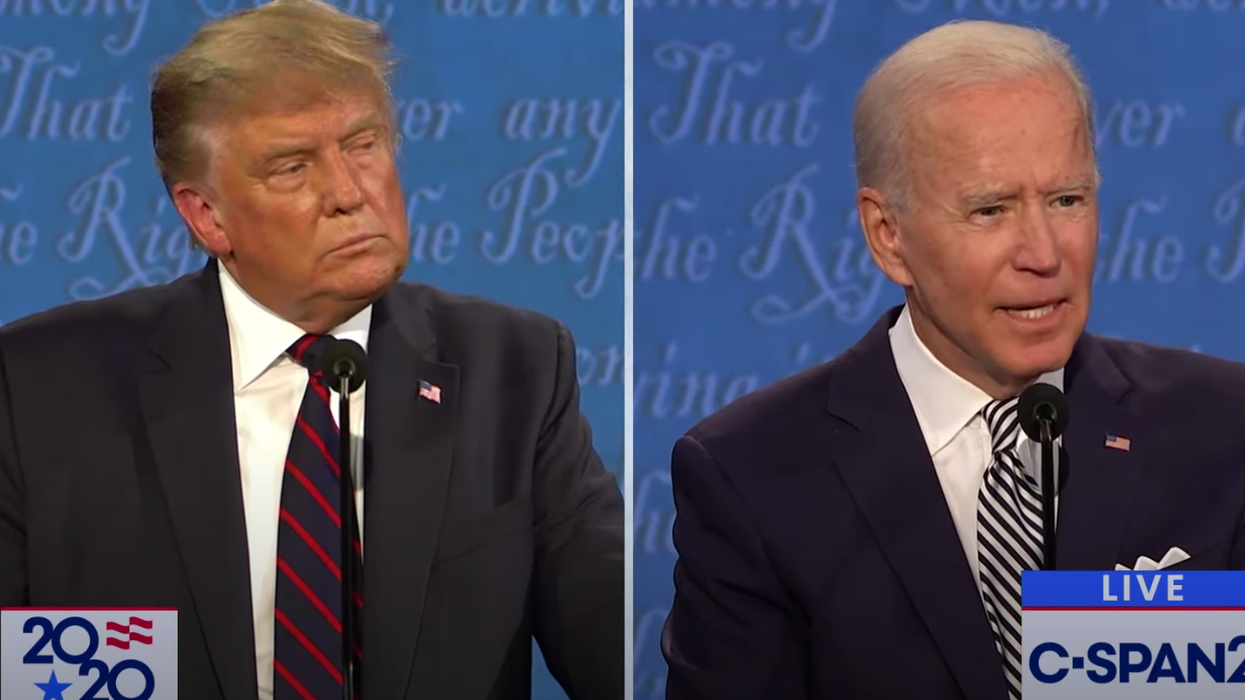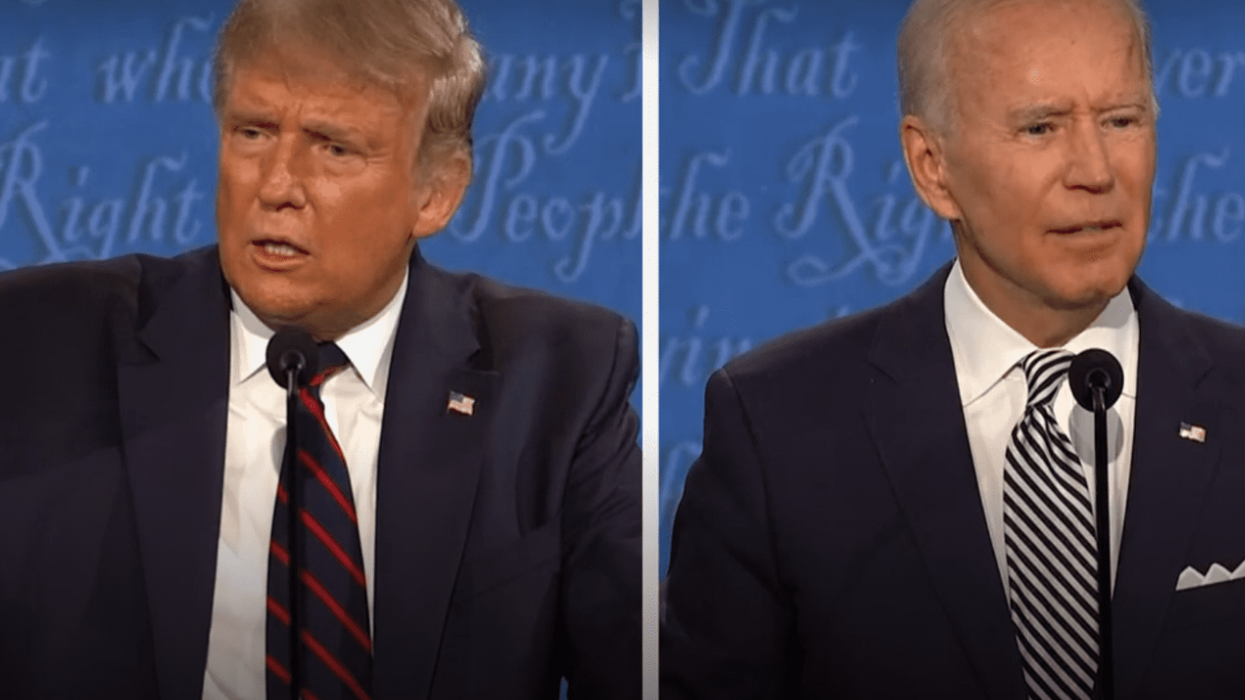Is Trump Camp Complaining About Rules So They Can Ditch Final Debate?
Reprinted with permission from DailyKos
Donald Trump is claiming that he will still debate despite the rule change that will cut off the candidates' microphones while their opponent delivers his initial two-minute response to each of the debate's topics. But everything else Trump and his campaign are saying sounds like they're laying the groundwork to back out.
"I will participate," Trump told reporters Monday night. "But it's very unfair that they changed the topics and it's very unfair that again we have an anchor who's totally biased." At his Arizona rally Monday, Trump attacked moderator Kristen Welker as a "radical Democrat" and claimed she had "deleted her entire account," which is false. Trump's campaign manager, Bill Stepien, went further in his whining about the debate.
Stepien touted a letter to the Commission on Presidential Debates as "Our letter to the BDC (Biden Debate Commission)." That letter came before the CPD announced that it would mute microphones for portions of the debate in response to Trump's constant interruptions at the first debate, though Stepien knew such a decision was likely coming, writing, "It is our understanding from media reports that you will soon be holding an internal meeting to discuss other possible rule changes, such as granting an unnamed person the ability to shut off a candidate's microphone. It is completely unacceptable for anyone to wield such power, and a decision to proceed with that change amounts to turning further editorial control of the debate over to the Commission which has already demonstrated its partiality to Biden."
Shooooot, here I thought it was generous to Trump that the microphones will only be cut to give each candidate two uninterrupted minutes, leaving Trump the remainder of each 15-minute debate segment to interrupt.
But what did Stepien mean by "other possible rule changes," you ask? What was the first rule change? Well, it wasn't one. Stepien wrote to strongly complain that "We write with great concern over the announced topics for what was always billed as the 'Foreign Policy Debate' in the series of events agreed to by both the Trump campaign and the Biden campaign many months ago." Welker's announced topics include "Fighting COVID-19, American families, Race in America, Climate Change, National Security, and Leadership," Stepien complained, using this as a launching pad to attack Biden on foreign policy.
Except this debate was never billed as a foreign policy debate. It's true that in past years, the third debate has sometimes focused on foreign policy, but here in 2020, the CPD's original announcement of debate formats and moderators said of the third debate, "The format for the debate will be identical to the first presidential debate," and the first debate "will be divided into six segments of approximately 15 minutes each on major topics to be selected by the moderator."
So even before the CPD finalized the decision to prevent Trump from interrupting for two minutes in each of six segments, so 12 minutes out of a 90-minute debate, Team Trump was falsely complaining that the debate was rigged. No wonder—as a Biden campaign spokesman noted, the Trump campaign is upset "because Donald Trump is afraid to face more questions about his disastrous Covid response."
Trump has lost one debate and backed out of one debate. If he goes into this one with the attitude he's showing now—attacking the moderator, attacking the topics, enraged that he can't interrupt for two entire minutes at a time—he's going to lose this one, badly, once again hurting his already weak reelection prospects. So which will it be? Back out and have that be the story, or alienate one of the largest audiences of the entire presidential campaign by showing what kind of person he is?




